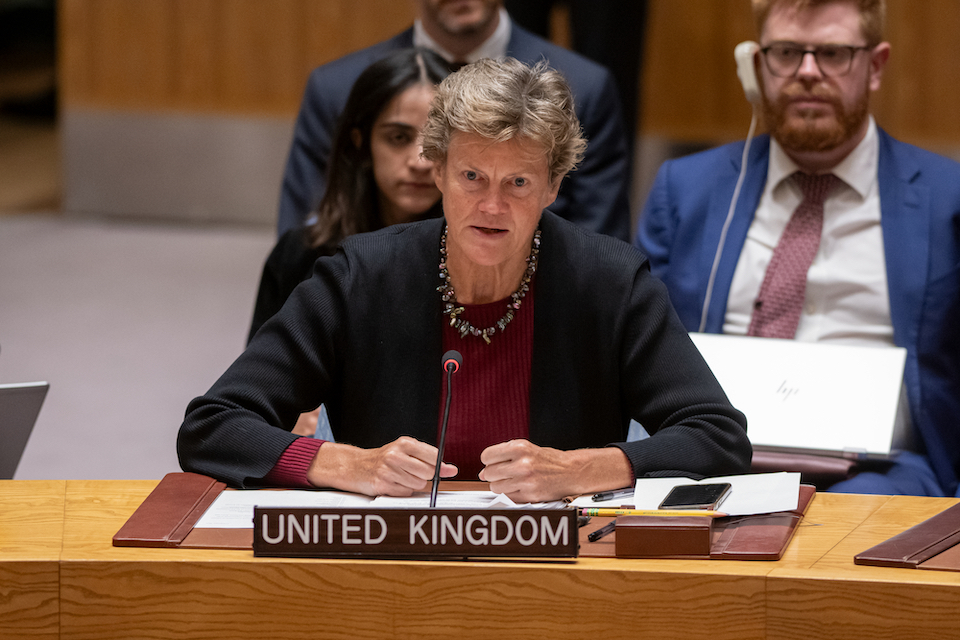Climate change, environmental degradation and biodiversity loss are exacerbating conflict: UK Statement at the UN Security Council
Statement by Ambassador Barbara Woodward at the UN Security Council meeting on Climate, Food Security and Conflict.

Thank you President, and thank you for organising this debate and to our briefers for their briefings which have underlined the interdependence of climate, security, and peace.
Climate change, environmental degradation and biodiversity loss are exacerbating conflict, contributing to global food insecurity, and threatening international peace and security.
And as Executive Secretary Stiel said earlier, the less action that is taken to address climate change, the more conflicts this Council will find on its agenda.
And those who are impacted by conflict, or facing severe humanitarian needs, are often the least resourced to adapt to the climate and environment crises.
These linked challenges require a coordinated international response and I offer three approaches in this regard:
First, we take early action to prevent and resolve food security crises. This was a key theme of last year’s Global Food Security Summit, co-hosted by the UK, the UAE and Somalia, where the UK announced its new Resilience and Adaptation Fund to help climate adaptation and increase anticipatory approaches.
We should build, too, on the successes of COP28, and increase climate finance to fragile and conflict-affected states. The UK endorsed the Emirates Declaration on sustainable agriculture, resilient food systems and climate action and pledged $126 million to help vulnerable countries tackle climate change, including support for early warning systems and disaster risk finance.
Second, we invest in innovation to increase sustainable, climate-resilient food production. The benefits of scientific advances should also be accessible to all, especially to smallholder farmers whose plight the President highlighted earlier.
The UK is driving scientific advances in food and agriculture, including through the CGIAR agricultural research organisation and the Gilbert Initiative.
Finally, President, we should support humanitarian, development, peacebuilding and climate actors to take a holistic and integrated approach to resilience, development, security and climate change.
As the President said earlier, collectively we should ensure that current and projected climate impacts are fully integrated into conflict risk assessments. And we should target climate work in fragile and conflict-affected countries in a way that addresses the causes of crisis, while also ensuring climate finance is conflict-sensitive.
The UN system, including its cadre of Climate Security advisers, is well-positioned to coordinate climate, food security, and peace efforts. This Council can support this by encouraging a coherent, integrated response, including within Council mandates.
President, the number of participants in today’s debate underlines the concern among the UN membership at the threat these interlinked challenges pose to international peace and security. It is incumbent on this Council to respond to these challenges.
I thank you.